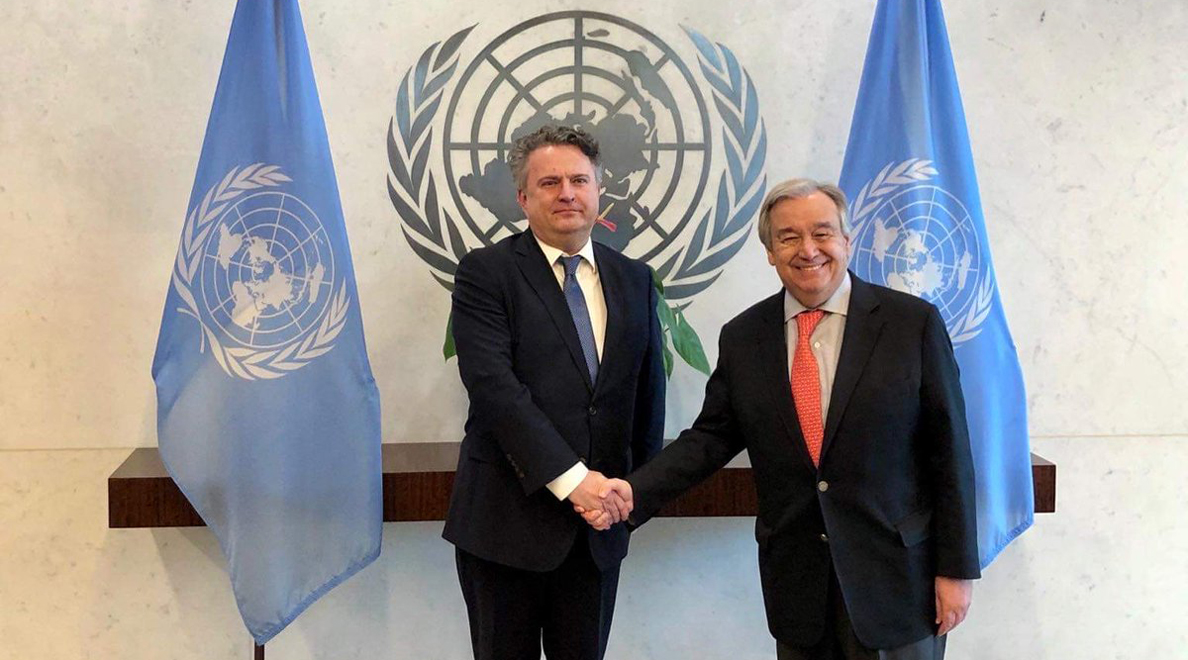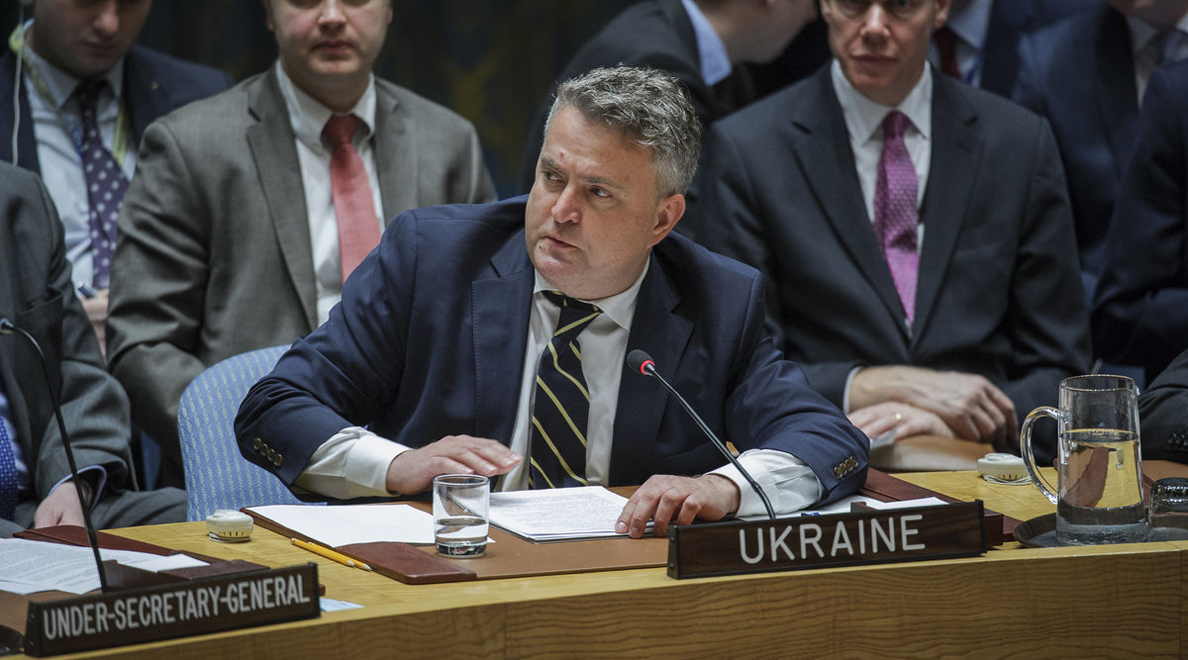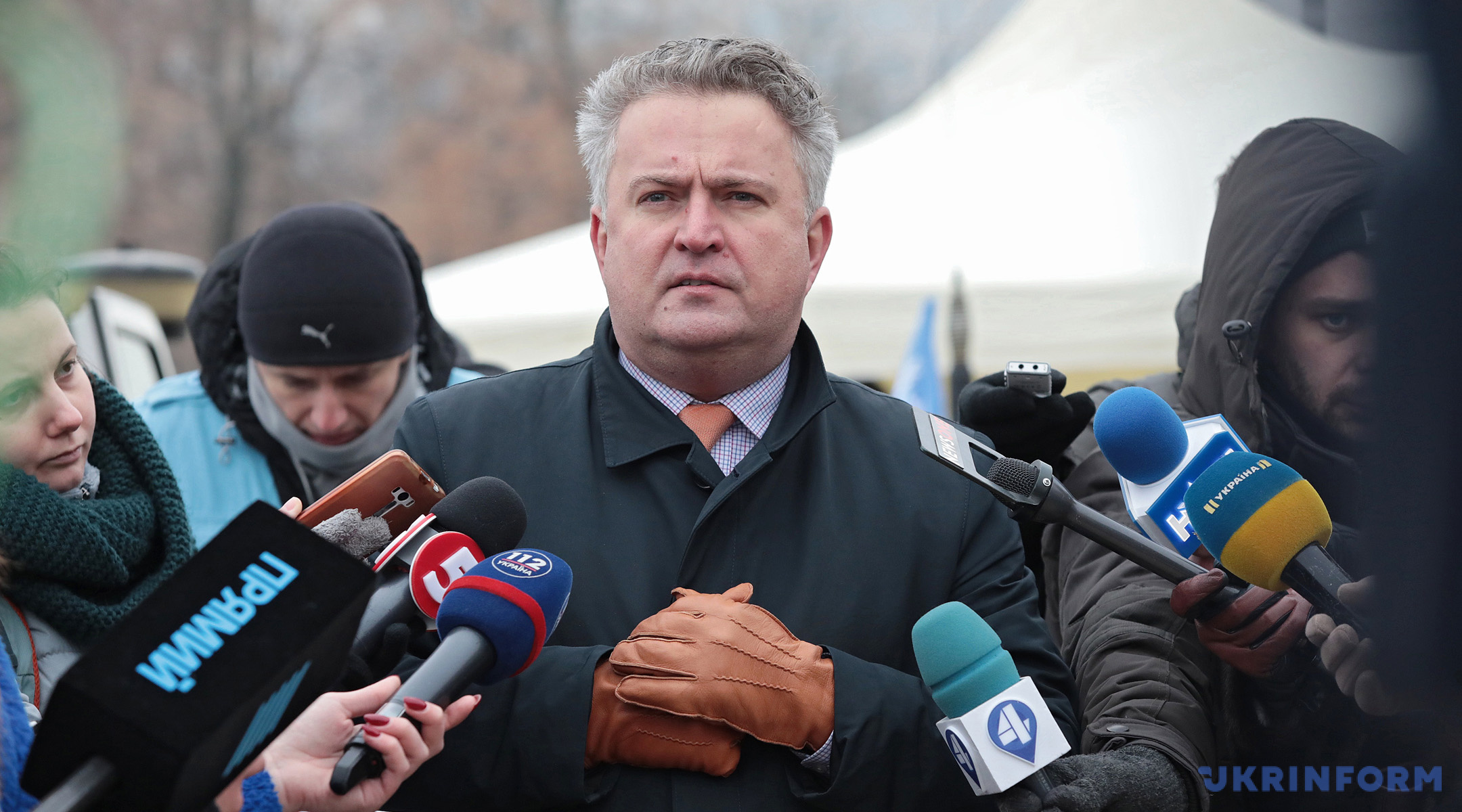On February 20, newly appointed Permanent Representative of Ukraine to the UN Sergiy Kyslytsya presented his credentials to UN Secretary-General Antonio Guterres. This procedure marks the beginning of the ambassador's activity in his post. Prior to that, Kyslytsya held the post of deputy minister of foreign affairs of Ukraine, was a member of the official Ukrainian delegation at a number of sessions of the UN General Assembly, and represented Ukraine at meetings of the Security Council and other key organs of the United Nations. We talked to Mr. Kyslytsya right after the presentation of the credentials, during a break in the hearings on the Ukrainian issue. On this day, the UN General Assembly discussed the situation in the temporarily occupied territories of Ukraine, and Ukrainian Foreign Minister Vadym Prystaiko delivered a speech.

Q: How would you assess today's meeting of the UN General Assembly on the situation in the temporarily occupied territories of Ukraine?
A: Today's event, on the one hand, is planned, and, on the other hand, it is a landmark. Because one of the tasks of Ukrainian diplomats is to keep on the agenda of the UN General Assembly the attention to the issue of Russia's war against Ukraine and the de-occupation of seized territories.
The number of those who wished to speak was so high that even a break was announced during the discussion [about 30 speakers spoke on this issue, and the discussion lasted almost five hours]. This shows that attention to this problem is even intensifying.
The interest of the United Nations, the General Assembly, in particular, is all the more important because the General Assembly makes fundamental decisions, which then become part of our evidence base and arguments in international tribunals.
Therefore, the importance of events at UN headquarters should in no way be diminished. I say this not because I became Ukraine's permanent representative to the UN, but because I need to look more broadly at the results of the decisions that are being taken now to overcome the effects of the war in 10-20 years. After all, the end of the war is not only about achieving peace, which is the most important thing, but also about a lot of work that needs to be dome after the war itself – eliminating consequences, paying compensation to victims, and so on.

Q: What did you discuss with Secretary-General Antonio Guterres?
A: Our conversation was very short, because the presentation of credentials is, in fact, a ceremonial meeting. But since I have known the Secretary-General for a number of years, the meeting was very warm. We have cooperated on many issues for a long time. I would like to remind you that Ukraine participates in one of the most important spheres of UN activity - peacekeeping operations. And it is very appreciated that despite the war, when we are forced to defend our country, we continue to provide our resources, particularly in Africa, for peacekeeping operations.
As a responsible country, we cannot just be a consumer. We talked about this with the secretary-general. We also discussed future high-level contacts between the UN and Ukraine. This issue was also raised during talks between the secretary-general and Foreign Minister Vadym Prystaiko.
Q: What fellow ambassadors have you already got acquainted with? With whom do you have long-standing contacts?
A: There are many acquaintances here... Many friends of Ukraine. Look at the list of speakers on today's issue who supported Ukraine at the General Assembly meeting - it is huge. I have known many ambassadors since I began to work as a deputy minister for international relations. We work very well with German Ambassador Christoph Heusgen - one of the best German diplomats. He knows a lot of things that other colleagues do not, because he was a direct participant in the Minsk talks when he was working in the Federal Chancellery. I would also mention the permanent representatives of France, the United States... Many ambassadors who cooperate with us represent Central Europe, Georgia, and the Baltic countries.
There are 193 ambassadors working for the UN in New York. It will take a year to meet with all of them. It will take two years to talk to all of them. And it may take several more years for them to become your allies.

Q: As far as I know, you speak not only English but also Spanish...
A: Yes... The fact that sometimes I speak Spanish at the UN Security Council and the UN General Assembly opens the door to Latin American countries with which we seek to intensify dialogue.
Q: What is your main mission in this post? Is it different from that of your predecessor, Volodymyr Yelchenko, who was appointed Ukraine's ambassador to the United States?
A: I am proud that my predecessor was Volodymyr Yelchenko. At the same time, it imposes a special responsibility on me, because I cannot afford a bar lower than the one held by Volodymyr Yelchenko. I am also responsible for the fact that President Volodymyr Zelensky decided to appoint me ambassador to the United Nations at this difficult time. To date, our participation in the UN is not an academic or theoretical matter. It is a matter of our country's survival and the end of the war. And that is the main priority in my work, which is what the country's leadership expects from me. This is what I will do first and foremost at the UN.
Let us look at the perspective. Let us imagine that the war will soon end with our joint efforts. What then? The question of the reintegration of the currently occupied territories will then arise. And it's not just billions of U.S. dollars. It will also be necessary to involve the international community. The UN has a wide range of technologies, tools, and experience. Without the active involvement of the United Nations in the reintegration and rebuilding of Donbas, it would be much more difficult and costly to overcome this problem.

Q: When exactly will you start working as Ukraine's permanent representative to the UN?
A: The government relieved me of my duties as Ukraine's deputy foreign minister, starting on February 27. The decision was made a few weeks ago. For the United Nations, I have been the permanent representative since I handed over my credentials to the Secretary-General, that is, from today. I have yet to return to Kyiv in a week to resolve some working issues and return to New York on February 28. That does not mean that they will pay me two salaries... They will always pay one salary, under all circumstances (laughs).
I will add that I started my work with the UN in 2006 when I returned from a business trip to Washington, where I held the post of minister-counselor to the Ukrainian ambassador to the United States. That's why I have never felt a novice in this building. I have never felt that the issues being addressed at the UN are something new to me. These are native walls to me.
Volodymyr Ilchenko, New York
Photo: ukraineun.org, Ukrinform
